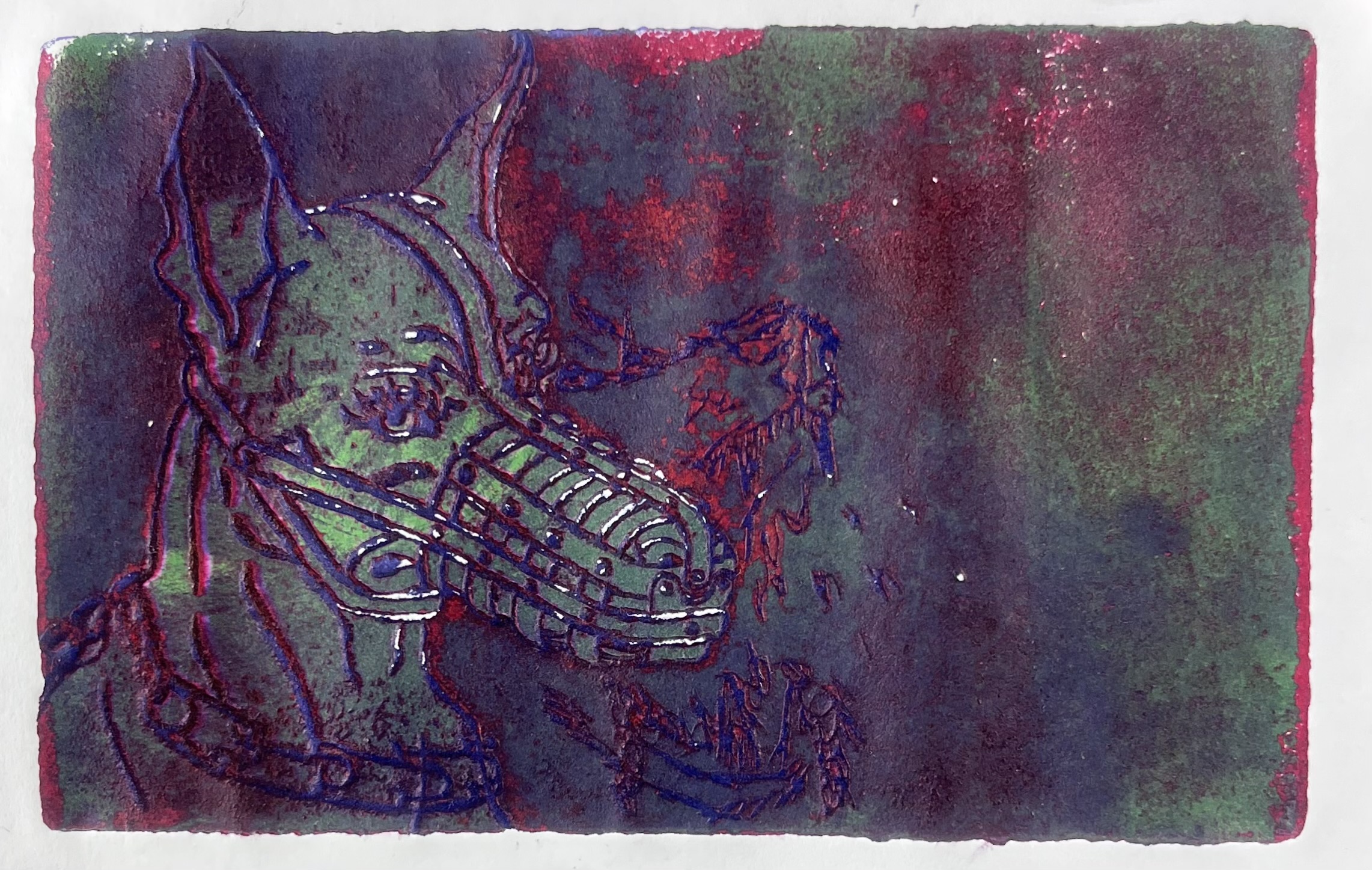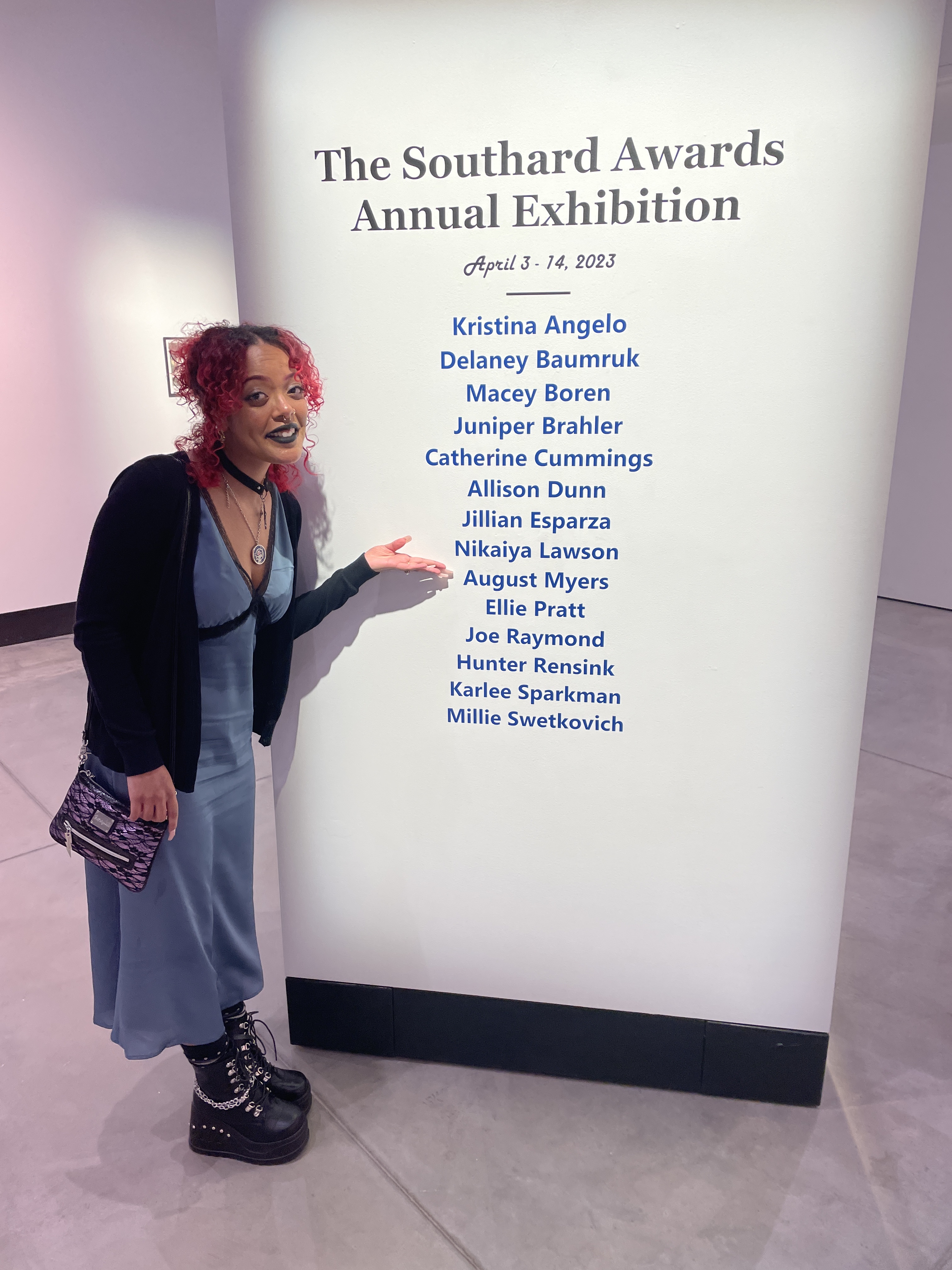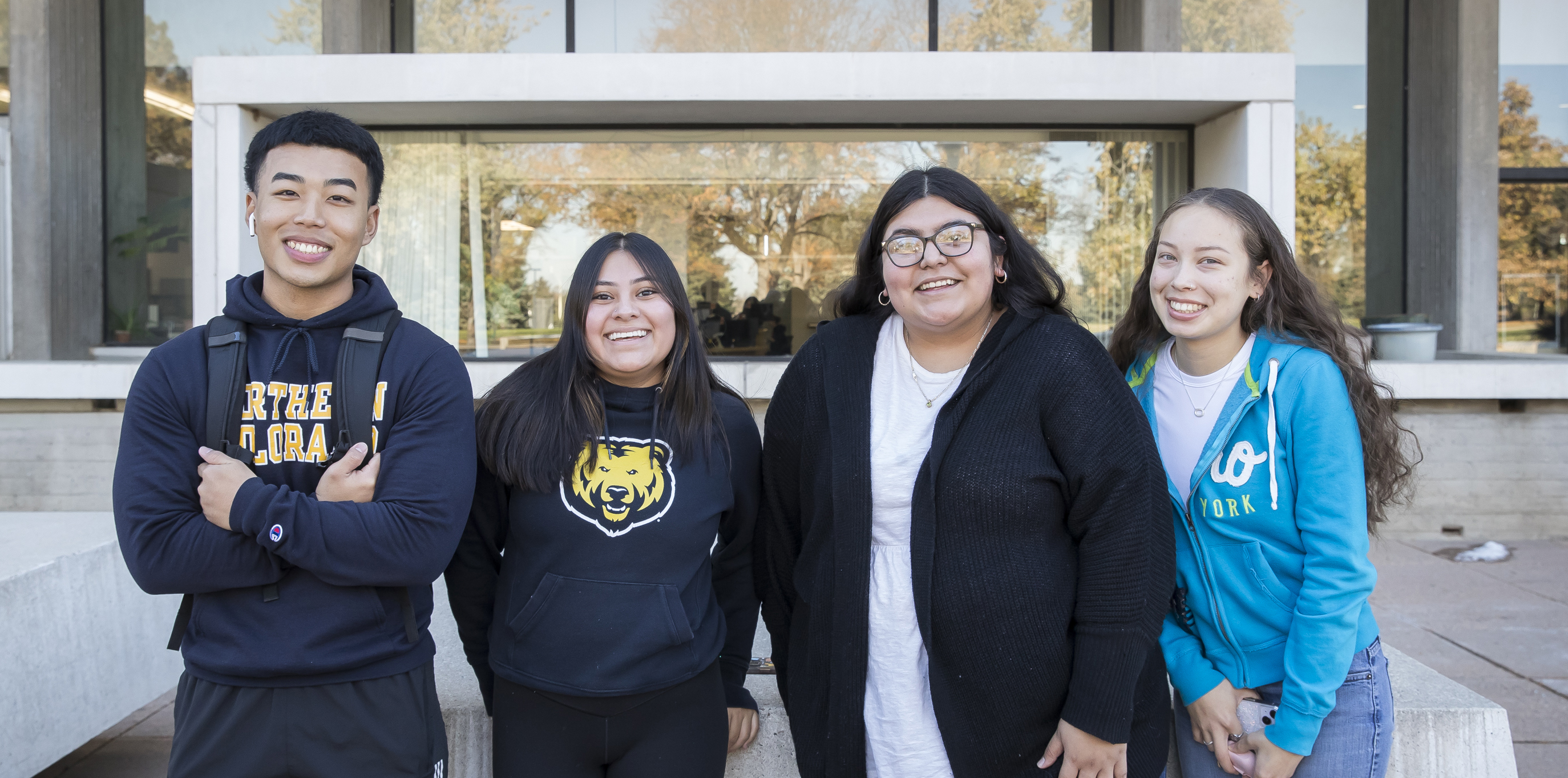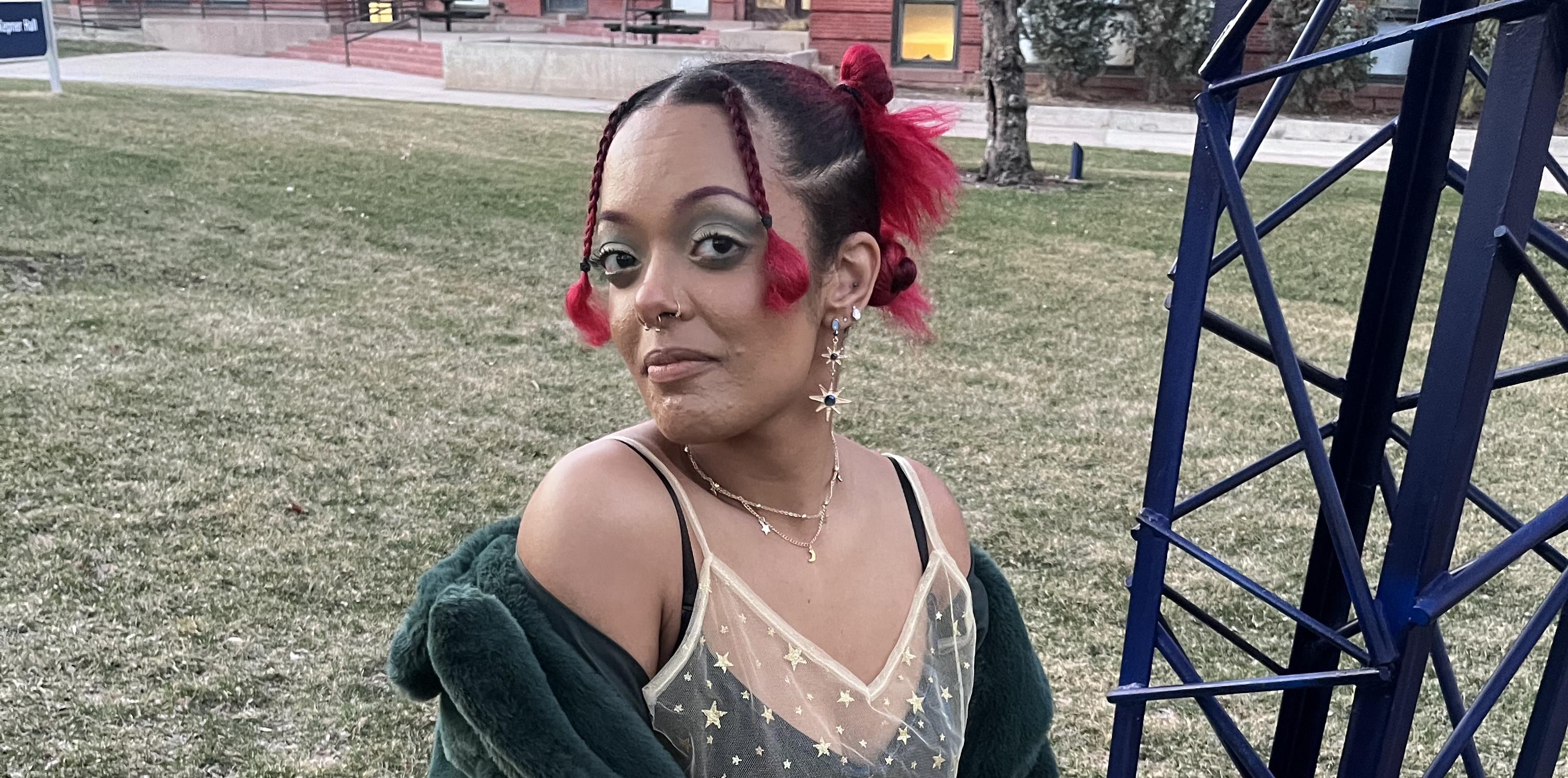
For Nikaiya Lawson, an Art and Design student graduating from UNC this spring, art is a safe place. After a suicide attempt at age 14, it has been the space where she finds meaning and can freely express her identity without limits.
“It really changed the whole trajectory of my life,” Lawson said. “There is no single thing that has happened to me that I’m benefiting from right now that doesn’t tie back to when I was 14.”
While she was recovering in a long-term treatment facility in Montana, the closest one to her home in Las Vegas that her insurance company would cover, Lawson decided her future was as a professional artist. She applied for and was admitted to the Las Vegas Academy of the Arts (LVA), a magnet high school that focuses on the Arts as a central part of the curriculum.
“At that time art was keeping me alive. LVA was my ticket out of the bad mental state I was in. I never used art as a medium to process my trauma until I was in the hospital, and I had to figure out how to keep myself preoccupied because I had a room to myself.”
Although happy with her acceptance into LVA, that doesn’t mean that things went easier from there. Even if art was a safe space for her, the institution’s level of demand and the lack of sensitivity about mental health were such a challenge that she was placed on academic probation.
“I was making a lot of progress spiritually and mentally. My parents kept telling me how proud they were of me. I was perfectly fine. But also, I still had a lot to work through,” Lawson said. “Classmates and people in general romanticized suicide, and I was constantly triggered. My grades were so bad, and I almost got kicked out of LVA. Again, my art saved me. I created a 12-piece collection based on the core factors that led to my suicide attempt. That helped me to process all my emotions. When I was on academic probation, my artwork was so strong that my counselor decided to give me another chance.”
During her time at LVA, Lawson was honored with a silver medal with distinction from Scholastic, the nation’s longest-running, most prestigious recognition program for creative teens, for a collection she created in her junior year about racism in America. She got the opportunity to talk at the Pratt Institute and present her work at Carnegie Hall in the presence of Tina Fey. The 24-piece art collection talks about how music helped the process of integration. The $10,000 she received as part of that award is what helped Lawson to come to UNC.
“I decided to come to UNC because they were the only college to give me useful feedback about my art during a portfolio night hosted at LVA,” Lawson said. “Other schools were just saying 'this is really good ' and the professor from UNC told me what I could do better. So, I realized they could help me to elevate my practice. I was even offered a scholarship from the University of Utah, but I turned it down because UNC was the only school that told me what I could do better”.
Currently, Lawson is beneficiary of the UCHealth scholarship at UNC and the Southard Competition Award.
As one of the few Black students on campus, Lawon’s artwork has transitioned over the past four years, changing from her personal expressions to reflect themes that are more political with a strong racial commentary. It has also helped her to open more spaces for other students of color.
Above: Examples of Lawson's art | Arriba: Ejemplos de la obra de Lawson
With friends and faculty’s support Lawson co-created Black is Punk, a student collective to reflect on race, gender and counterculture through different art expressions. Several divisions at UNC supported these students' efforts in different ways. The first exhibit from Black is Punk was held at Michener Library, and the Marcus Garvey Cultural Center organized a fundraising campaign to help support other students with similar projects.
“Coming to UNC and meeting with Lee, Lex, Anne and Hunter, (also UNC art students) felt like I could just be myself without consequence. Then we took History of Rock and Roll and the teacher —Leo, oh my gosh — he did such a great job showing us how Blackness is the root of rock and roll and how it correlates to everything.”
Lawson found that her previous research about music and race was validated and expanded upon. She decided to create Black is Punk to open more spaces for Black art students to showcase their work.
“I want to highlight that because these kids aren’t probably going to get the same opportunities as white kids because the work that they are talking about has nothing to do with blackness,” Lawson said. “And unless you are Black talking about what it is to be Black, these institutions don’t want nothing to do with you.”
Just before graduating, Lawson was the runner-up at the Southard Award with a body of work she curated during her college career.
After graduation, she plans to focus on creating an art collective with her friends to talk about political and relevant issues.
Above: Examples of Lawson's art | Arriba: Ejemplos de la obra de Lawson
“We will continue talking about the things that are very uncomfortable but very important. Our community needs to accept that we exist and that our perspectives are valuable,” Lawson concluded.
For information about UNC’s Counseling Center, visit their website online. To learn about resources related to suicide visit Suicide Prevention Resource Center.
–written by Carlos José Pérez Sámano
More Spring 2023 Graduate Stories:
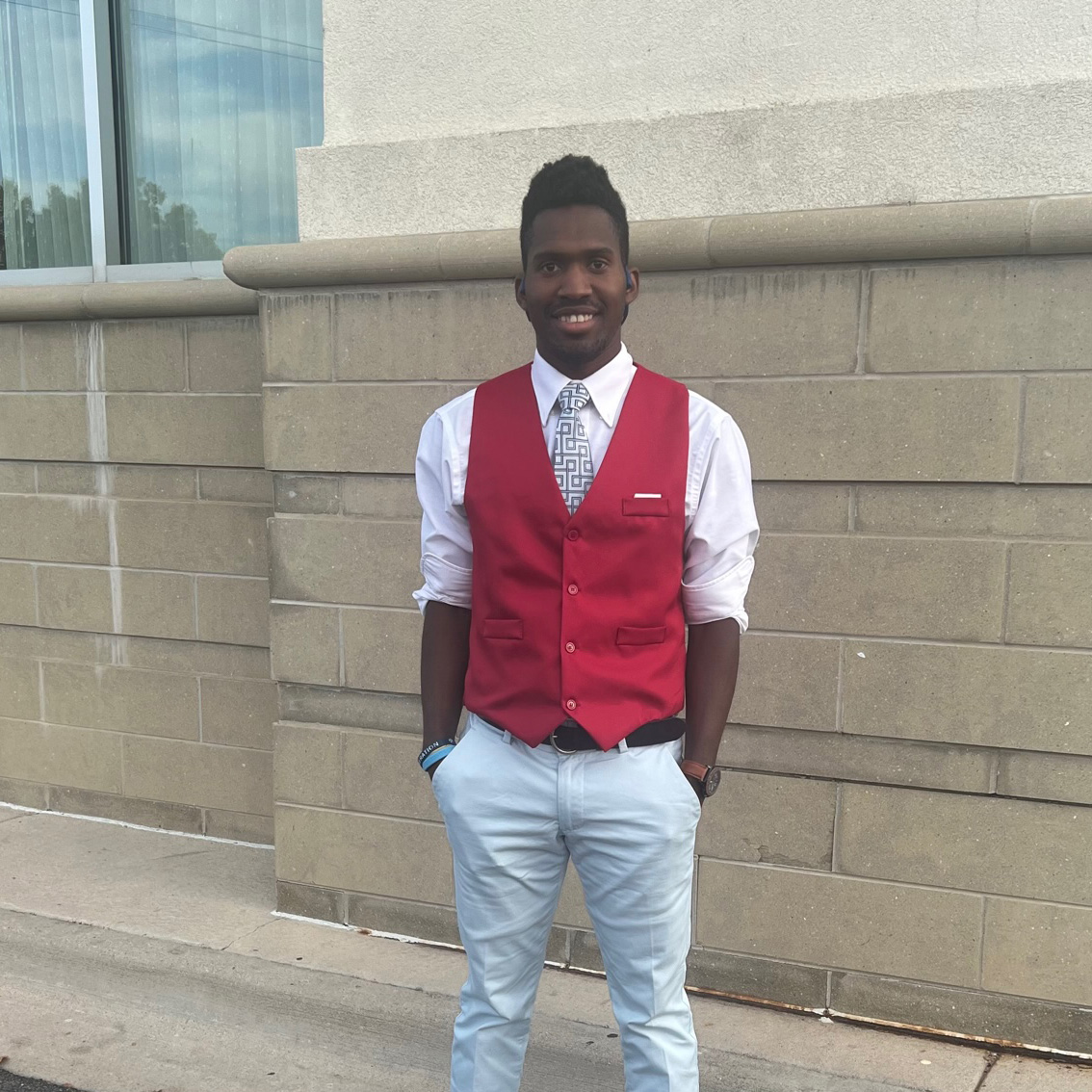
J.P. Gaspard
As a first-generation, multilingual, graduating senior from Haiti, J.P. Gaspard’s accomplishment of earning his Bachelor of Arts in Elementary Education is no small feat – and he has no plans to take a break from overcoming obstacles now.

Dakota Baer
Education major Dakota Baer's goal was to graduate with no student loan debt. She was on track to meet this goal until her last semester when she had to student teach full-time without being paid.
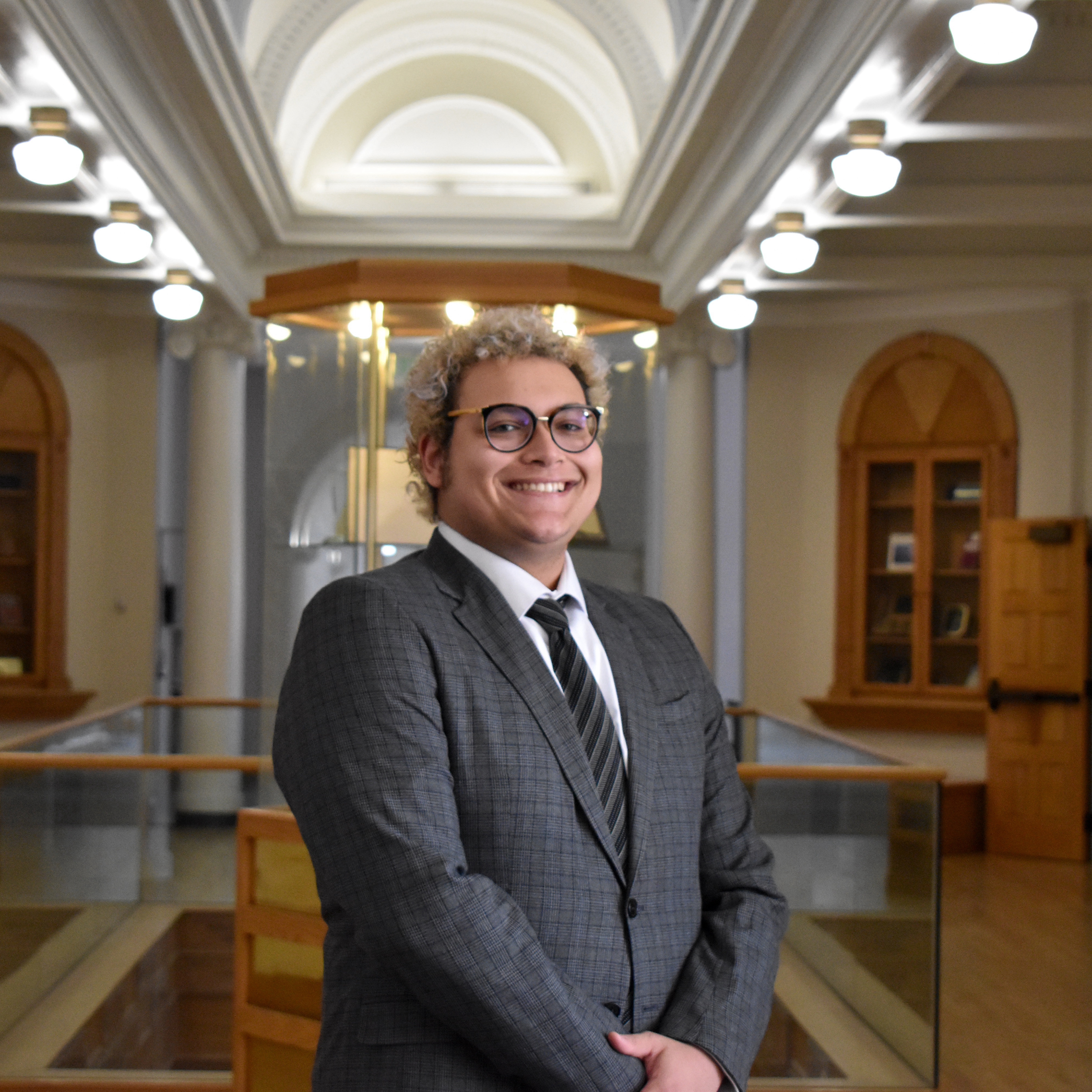
Dante Cesare
After experiencing hardship in high school, multiple professors helped Business major Dante Cesare fall in love with education again.
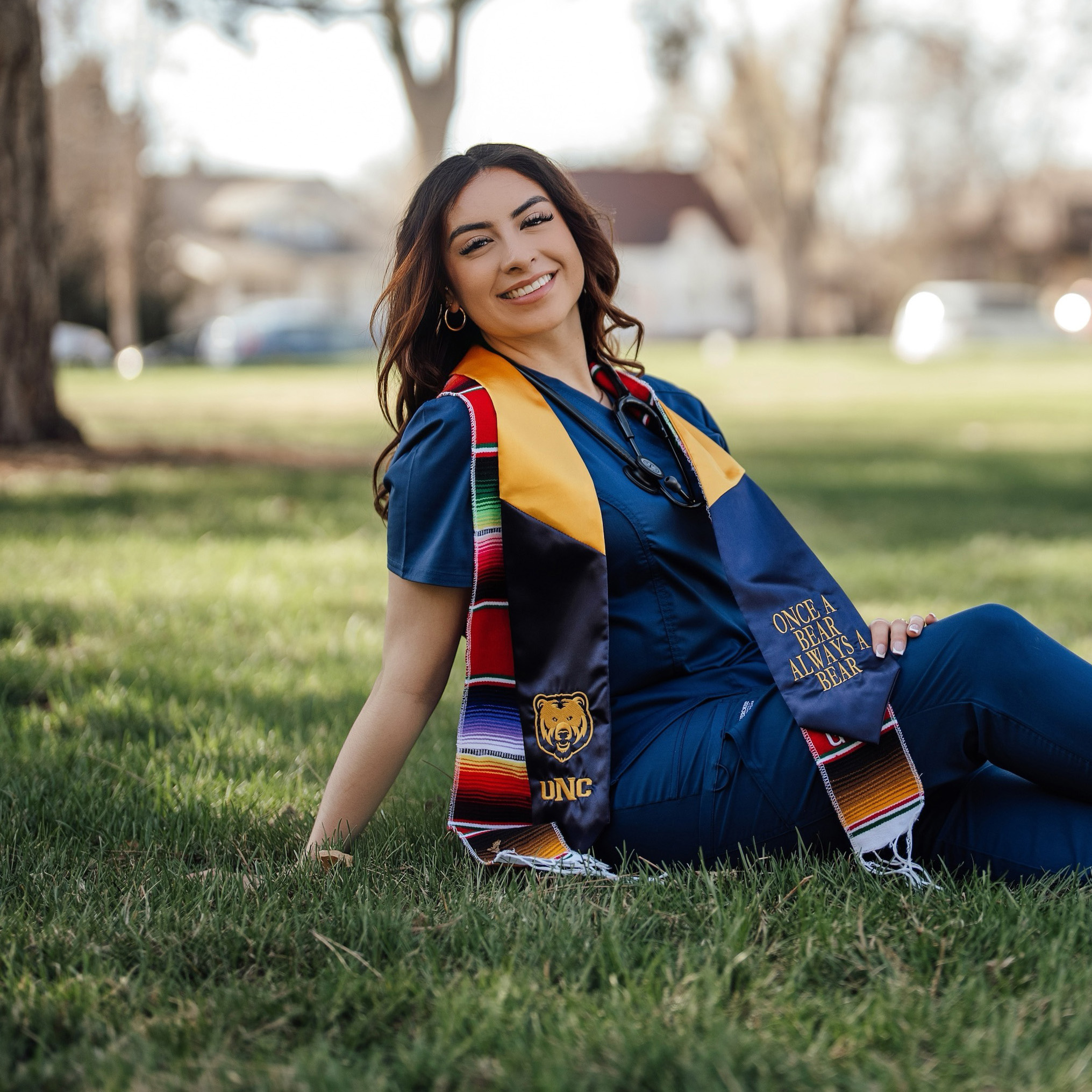
Rosemary Gonzalez
First-generation Nursing major Rosemary Gonzalez knew attending college without her parents fully understanding all the steps it takes to get there would create some obstacles and adversities. Facing those is when she realized that for her to be successful in higher education, she needed to find a new support system.
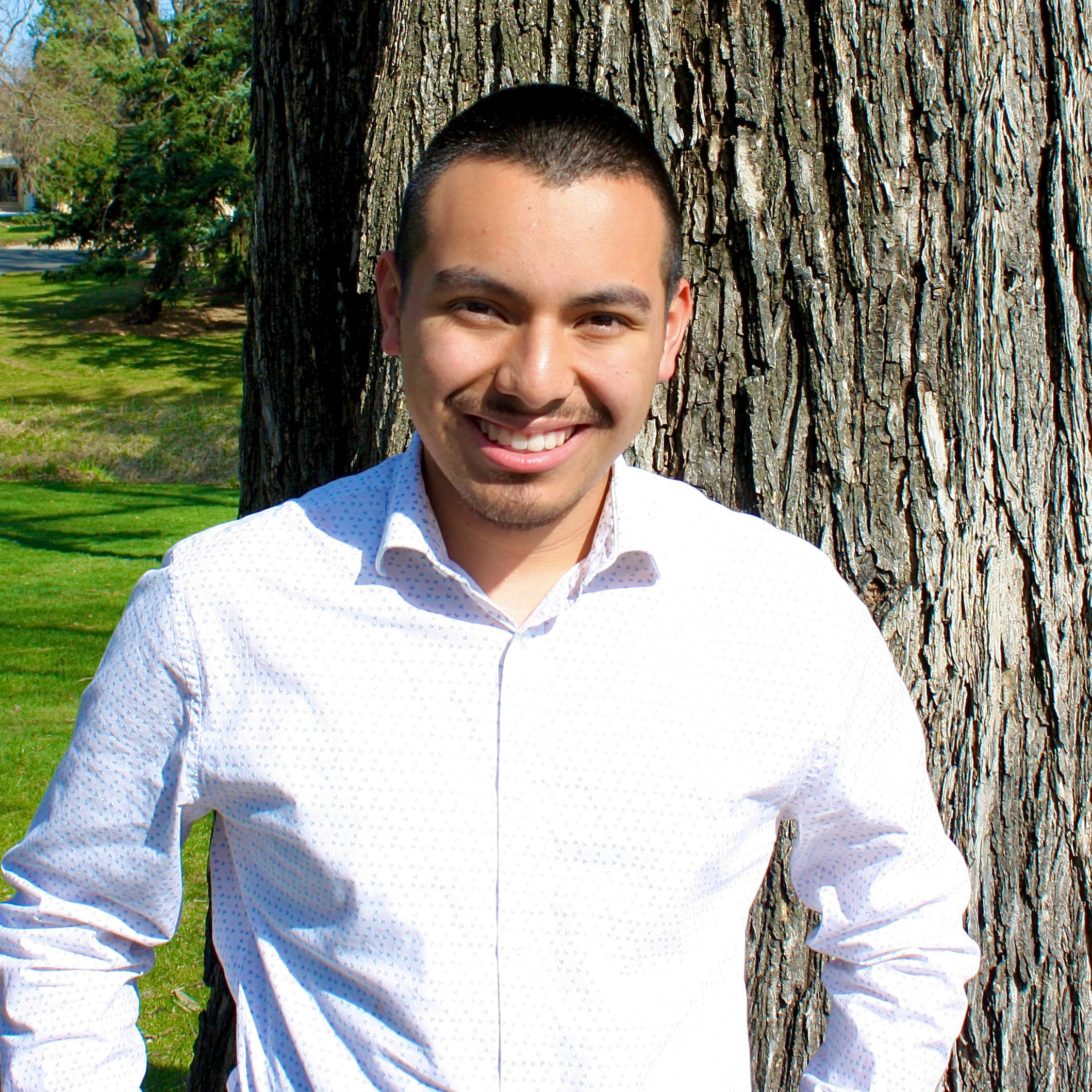
Jerry Guzman
Jerry Guzman, a Sociology major, was raised by non-native English speaking parents who did not attend college. They emphasized the significance of education and hard work in the classroom, which has influenced Guzman’s values today.
More Stories
-
Governor Polis Reappoints Two to UNC’s Board of Trustees
Este artículo no está en español.
-
State Farm Invests in Career Readiness Initiatives for UNC Students
Este artículo no está en español.
-
Commentary: The Importance of Investing in First-Generation Students
Este artículo no está en español.
-
Supporting First-Generation College Students to Become Next-Generation Leaders
Este artículo no está en español.



